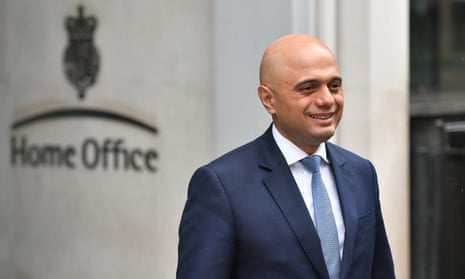The Good Friday agreement is widely revered as a model of peace and celebrated worldwide. Yet the Home Office has openly disregarded the agreement, and is actively seeking to undermine its very foundation. I should know: I have spent the past four years in legal proceedings battling the Home Office.
The people of Northern Ireland are unique within the UK in that we have the birthright to identify and be accepted as Irish or British or both. However, contrary to the statutory duty on the Home Office to accept the birthright provisions of the Good Friday agreement, it is arguing through the British courts that the people of Northern Ireland are “automatically British” as we were “clearly born in the United Kingdom”. The department regularly and repeatedly forces British citizenship on Irish citizens born in Northern Ireland – citizens who are Irish by birth and by choice – a choice the people of this island voted for overwhelmingly in the Good Friday agreement referendum. With Brexit on the horizon, and EU citizens’ rights in the balance, the situation has become urgent.
I am an Irish national born in Northern Ireland. The position of the Home Office is that I’m a dual British/Irish national due to my birth in Northern Ireland, and if I would like to fully retain and access my rights as an Irish/EU national in the UK, I am “welcome to renounce” my British citizenship and rely on my Irish citizenship. I have never claimed British citizenship and do not hold a British passport.
The Home Office’s position, according to court documents, is that the people of Northern Ireland are “as a matter of law British”, with the counterintuitive argument that there “is nothing in the Belfast agreement to prevent British citizenship being acquired at birth”. Further, the documents troublingly elaborate: “A treaty [the government] is a party of does not alter the laws of the United Kingdom,” and that the “courts do not have the power to force the government to uphold its obligations and commitments to a treaty”.
These arguments have been reaffirmed by the immigration minister, Caroline Nokes, who stated: “Our view is that an international agreement such as the Belfast Good Friday agreement cannot supersede domestic legislation.”
Legally, treaties are to be interpreted in good faith and in accordance with the meaning given to the terms within them, in light of their context and purpose. So why is the Home Office refusing to accept that the Good Friday agreement is a UN-registered international treaty between two sovereign states, and that the government is expected to act in accordance with it? It has become clear that an Irish identity in Northern Ireland comes at great personal cost. It could be losing your right to work. It could be losing your right to travel. It could be losing the right to say a final goodbye to a loved one before they’re gone. Northern Irish citizens are losing their right to be who they are.

At the behest of the Home Office, I, as well as many others, have had to stand in court detailing every moment of our lives where our Irish identity was evident. We are being asked to literally prove that we are Irish.
Theresa May has acknowledged that an incompatibility between Home Office policies and commitments to the Good Friday agreement exists. An urgent review was promised. In response to a freedom of information request, it appears that there is no formal review, no progress – and no terms of reference or timeframe held on record. Under recent policy changes, Northern Ireland-born Irish citizens will be unable to fully retain and access their EU rights and entitlements within the UK. The post-Brexit EU settlement scheme is the British government’s enactment of the citizens’ rights chapter of the withdrawal agreement. It remains open to Irish citizens born in the Republic of Ireland, while it is closed to Irish citizens born in Northern Ireland. This is creating a two-tier system for Irish citizens: those who can fully retain their EU rights and benefits under the settlement scheme, and those who cannot.
While it is noted that the Home Office has advised Irish citizens that they “do not need to apply but can do so if they wish”, it is also important to note that their non-Irish/British family members do need to apply. The common travel area is cited as a reason for Irish citizens to not apply under the scheme, but it remains largely unimplemented and unenforceable. The restrictions on Northern Ireland-born Irish citizens will result in a loss of wider EU rights, such as family reunification. We will be among the only EU citizens within the UK to face such a restriction. How can the home secretary, Sajid Javid, justify the marginalisation of one group of Irish citizens?
We voted for peace and the recognition of the unique status of Northern Ireland. There is no equality in legally allowing Northern Ireland-born citizens to be exclusively British while denying that same right to those who wish to be Irish. No citizen should have their identity questioned or be instructed to renounce any citizenship in order to access an entitlement.
There is an onus on Javid to take responsibility for the derogation of duties to the Good Friday agreement, and to the people of Northern Ireland. We have waited, and we have waited patiently, for the full realisation of our rights. In the face of Brexit, we cannot wait any longer. It is time for the Good Friday agreement to become what it was destined to be.

